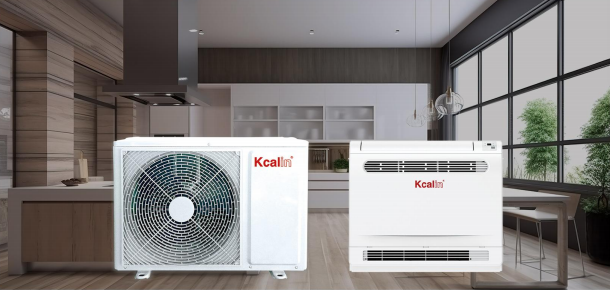In centralized heating systems, the selection of heat source equipment directly affects heating efficiency, energy consumption, and environmental protection level. With the increasing environmental requirements and changes in energy costs, natural gas boilers and air source heat pumps have become two highly regarded choices for centralized heating sources. Both have their own advantages and disadvantages, so in practical applications, which device is more superior?
Characteristics and advantages of natural gas boilers
Efficient and reliable: Natural gas boilers are one of the traditional heating sources, and have been widely used due to their mature technology and efficient combustion efficiency. The thermal efficiency of modern natural gas boilers is usually above 90%, which can quickly provide a large amount of heat and is particularly suitable for use in cold weather.
Strong stability: The natural gas supply is relatively stable and not easily affected by external environmental factors. Even in extremely cold environments, natural gas boilers can maintain stable operation and provide continuous heating services for buildings.
Low operating costs: In regions where energy prices are relatively stable, the cost of natural gas is usually lower than that of electricity. Therefore, the operating cost of natural gas boilers is relatively economical, especially in large-scale centralized heating projects, where their long-term cost advantage is obvious.

Characteristics and advantages of air source heat pumps
Efficient and energy-saving: Air source heat pumps provide heating by extracting heat from the air, with an energy efficiency ratio (COP) typically ranging from 3.0 to 4.0, meaning that for every 1 unit of electricity consumed, 3 to 4 units of thermal energy can be generated. Compared to traditional boilers, air source heat pumps have higher energy efficiency, especially in non extremely cold weather conditions, which can reduce the energy consumption of heating systems.
Environmentally friendly and pollution-free: Air source heat pumps do not rely on burning fossil fuels, so they do not emit pollutants such as carbon dioxide and sulfur oxides during operation, making them a green and environmentally friendly heating solution. This characteristic makes it highly favored in the current low-carbon economic development.
Multifunctionality: Air source heat pumps can not only be used for heating, but also provide cooling and domestic hot water services, especially suitable for use in areas with distinct seasons. Its versatility allows users to meet different climate needs throughout the year with the same system, improving equipment utilization.
Comparison between natural gas boilers and air source heat pumps
1. Applicable scenarios
Natural gas boilers are suitable for scenarios that require high heat output and high heating stability, such as large buildings and industrial facilities in cold northern regions. For extremely cold environments, the performance advantages of natural gas boilers are more pronounced.
Air source heat pumps are more suitable for use in mild climates or small and medium-sized buildings. Its efficient and energy-saving characteristics give it a cost advantage in areas with high energy prices, and it is also a more suitable choice in areas with strict environmental policies.
2. Environmental impact
Although natural gas boilers are efficient and stable, they still emit a certain amount of greenhouse gases and pollutants during their use, and long-term use has a certain impact on the environment. Air source heat pumps, on the other hand, are driven by electricity and do not produce direct emissions, making them more environmentally friendly.
3. Economy
In regions where energy prices are relatively stable, natural gas boilers have lower initial investment costs and also have advantages in operating costs. Although air source heat pumps require high initial investment, their energy-saving characteristics result in relatively low long-term operating costs, making them suitable for users who prioritize long-term returns.
Natural gas boilers and air source heat pumps have their own advantages and disadvantages, and the selection should be based on specific application scenarios, climate conditions, environmental requirements, and economic budgets. If your area is experiencing severe winter temperatures and requires large-scale heating, natural gas boilers may be a more suitable choice; If the climate in your area is mild and you pay attention to environmental protection and energy conservation, air source heat pumps are a more superior solution.
The choice of equipment should be guided by actual needs. For users who pursue energy conservation and environmental protection, air source heat pumps are undoubtedly the future trend; For users who pursue efficient and stable heating, natural gas boilers are still a reliable choice that cannot be ignored.







Comment